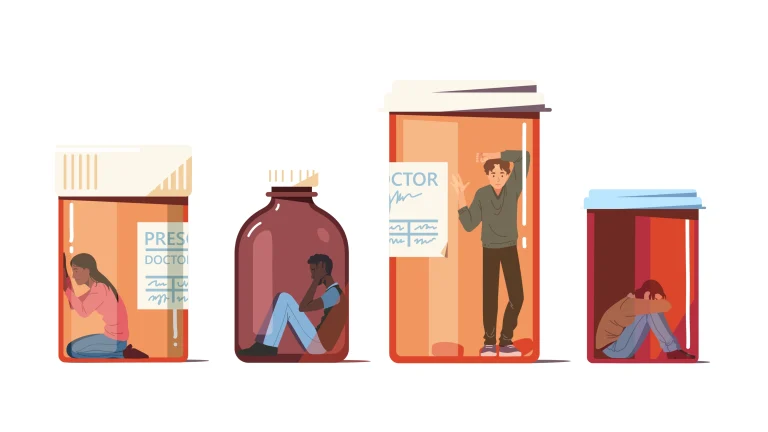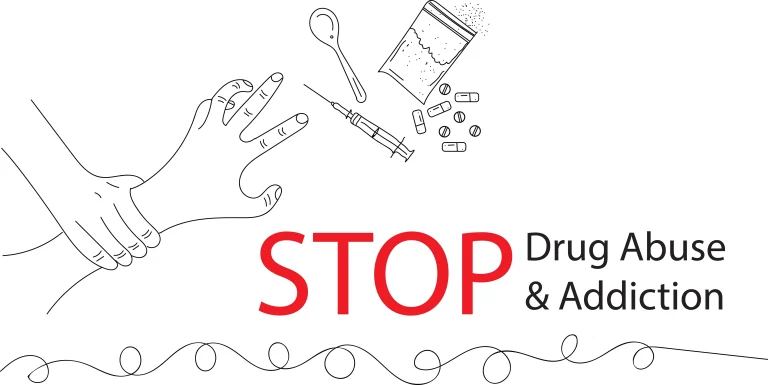Substance use disorders involving alcohol, opioids, heroin, fentanyl, and other drugs effect over 20 million Americans each year. However, recovery is attainable through comprehensive treatment….
Substance use disorders involving alcohol, opioids, heroin, fentanyl, and other drugs effect over 20 million Americans each year. However, recovery is attainable through comprehensive treatment.
Medication-assisted treatment (MAT) is the most effective approach for treating severe substance use disorders. MAT combines FDA-approved medications, counseling, and behavioral therapies to address the complex medical and psychological components of addiction.
MAT medications such as buprenorphine, methadone, and naltrexone target the disrupted brain chemistry underlying addiction. By relieving withdrawal, reducing cravings, and normalizing brain function, these medications allow people to regain control over substance use. Therapies like cognitive behavioral therapy and motivational interviewing help modify addictive behaviors and develop healthy life skills.
Used together, medication and therapy provide multidimensional treatment tailored to each patient’s needs. MAT has been transformative for millions struggling with addiction, giving them tools to manage their illness and reclaim fulfilling lives in recovery.
Recent Study Sheds Light on Medication for Alcoholism Treatment:
A clinical trial conducted at UCLA between 2015-2019 looked at using two medications – varenicline and naltrexone – to reduce drinking and smoking in people who drank heavily and smoked daily.
During the 12-week trial, all 165 participants took 2 mg of varenicline twice daily to aid smoking cessation. In addition, some received 50 mg per day dose of naltrexone for alcohol use disorder, while others got a placebo.
At 26 weeks after the trial, 36% of participants had quit smoking entirely. This quit rate was higher than in other varenicline trials. Surprisingly, those taking just varenicline had better smoking cessation rates than those taking both medications. However, the group taking both medications reduced their drinking significantly more than the placebo group – from 7 drinks per day to 3 drinks per day on average.
This research reveals the potential of combining varenicline with naltrexone for promoting reduced intake for those suffering from alcoholism. These trials did not include any behavioral therapy, and all results were from medication treatment alone.
Read the full report in the American Journal of Psychiatry.
What is Medication-Assisted Treatment?
MAT provides a holistic approach to treating substance use disorders like alcohol and opioid addiction. This treatment option uses medication in combination with counseling and behavioral therapies to comprehensively treat addiction.
MAT medications work to normalize brain chemistry disrupted by drug or alcohol abuse. They help reduce cravings for the abused substance and ease withdrawal symptoms. For example, the medication naltrexone blocks the euphoric and rewarding effects of alcohol and opioids. This reduces cravings and supports abstinence. Buprenorphine relieves opioid withdrawal symptoms and cravings.
The MAT medications allow individuals to focus on their recovery without the distraction of withdrawal symptoms or uncontrolled cravings. The medications help stabilize the brain and body, so healing can occur.
Behavioral therapy is a crucial component of MAT. Counseling helps people modify deeply ingrained attitudes and behaviors around substance use. Therapies like cognitive behavioral therapy teach coping strategies for managing cravings and preventing relapse. Counseling provides motivation and accountability during the recovery process.
By combining medication, therapy, and support, MAT addresses the complex psychological, social, and biological aspects of addiction. A whole-person approach empowers long-term recovery success. MAT provides hope to the millions of individuals and families impacted by substance use disorders.
MAT for Alcohol Use Disorder
For people struggling with alcohol use disorder or alcoholism, MAT can help reduce drinking behaviors and support recovery. The medications most commonly used for alcoholism medication assisted therapy are naltrexone and acamprosate.
Naltrexone works by blocking the euphoric and rewarding effects that drinking causes in the brain. This reduces cravings for alcohol and the urge to drink. Studies show that naltrexone decreases the number of heavy drinking days and promotes abstinence. It helps prevent relapse so people stay in recovery.
Acamprosate (Campral) works differently than naltrexone. Acamprosate helps stabilize chemical imbalances in the brain caused by alcoholism. This can ease withdrawal symptoms like anxiety, insomnia, restlessness, and dysphoria. Acamprosate reduces cravings and supports continuous abstinence from alcohol.
The effects of MAT alcohol medications can be enhanced by participating in counseling like cognitive behavioral therapy or motivational enhancement therapy. Having support and accountability helps change habits and thought patterns around alcohol use.
Research shows combining MAT medication with therapy improves outcomes for alcohol use disorder. MAT provides a powerful approach to regaining health, relationships, and quality of life disrupted by alcoholism. Consult with an addiction specialist to see if MAT is right for you or your loved one battling alcohol addiction.
MAT for Opioid Addiction
MAT is the most effective treatment for opioid addiction treatment of drugs like heroin, fentanyl, and prescription painkillers. MAT for opioid addiction employments medications like methadone, buprenorphine (Suboxone), and naltrexone (Vivitrol).
Methadone is a long-acting opioid agonist. It activates the opioid receptors in the brain, reducing cravings and withdrawal symptoms. This allows people to stabilize and function normally. Methadone is taken daily under medical supervision at a specialty clinic.
Buprenorphine is a partial opioid agonist. It stimulates opioid receptors enough to ease withdrawal, reduce cravings, and block the effects of other opioids. Buprenorphine combined with naloxone (in Suboxone) helps prevent misuse. Buprenorphine can be prescribed in clinics or doctors’ offices.
Naltrexone is an opioid antagonist, meaning it fully blocks the effects of opioids. This removes the reward if opioids are used. Naltrexone eliminates cravings and prevents relapse. It comes in a monthly injectable form (Vivitrol) or a daily pill.
These MAT medications provide critical relief from withdrawal symptoms, cravings, and the compulsion to use opioids. They allow the brain to start healing and give people time to focus on counseling and learning coping skills. By saving lives and helping people achieve recovery, MAT medications are invaluable tools to overcome opioid addiction.

The Benefits of MAT
Research shows MAT is more effective at treating substance use disorder than short-term detox or abstinence-only programs. The benefits of MAT include:
- Higher retention in treatment. MAT helps patients fully engage in recovery programs for the long-term, with less dropout compared to non-medication treatment. For example, methadone treatment retains patients in therapy for greater than 80-90% of the time, versus only 20-40% retention for non-medication detox programs.
- Lower risk of overdose death. MAT cuts the risk of overdose mortality in half or more for those with opioid use disorder. This life-saving benefit results from reduced impulsive opioid misuse.
- Higher rates of sustained sobriety. People who receive MAT remain sober for longer compared to non-medication treatment. For example, one study found 36% of people who received extended buprenorphine treatment were sober 18 months later, versus only 20% for brief detox treatment.
- Increased long-term recovery success. MAT provides a comprehensive approach addressing biological, psychological and social drivers of addiction. This multifaceted treatment leads to better long-term outcomes. One study found 13% of people who received extended buprenorphine treatment achieved 5+ years of recovery, versus only 5% for brief detox.
- Lower risk of relapse. Medications help normalize brain functioning disrupted by substance abuse, reducing cravings and impulses to use. This prevents relapse, so recovery can progress. Across studies, MAT cuts risk of relapse back to substance use by up to 50-70% compared to no medication.
MAT stabilizes brain functioning and promotes engagement in therapy to establish long-term recovery. Substance use disorders cause significant changes in brain chemistry that drive compulsive drug-seeking behaviors. MAT medications help normalize the disrupted neurotransmitter systems involved in addiction.
By targeting the biological processes underlying addiction, MAT medications relieve the preoccupation with substance use. This gives space for the brain to heal and allows people to focus on making behavioral changes through therapy.
Therapy provides tools to modify the attitudes, thought patterns, and behaviors that perpetuate addiction. Counseling also improves motivation and accountability. Patients on MAT are better equipped to fully participate in and complete evidence-based therapies.
The Vital Role of Therapy in MAT
Medications used in MAT address the biological components of addiction, but behavioral therapies are equally important for promoting long-term recovery. Professional counseling provides tools to identify triggers, build healthy coping strategies, and make critical lifestyle changes.
Common therapies used along with MAT include:
Cognitive Behavioral Therapy
CBT is a cornerstone of addiction therapy. It empowers patients to recognize and deconstruct destructive thought and behavior patterns that are intricately linked to their substance use. Through CBT, individuals learn to reframe their thoughts, respond differently to triggers, and ultimately make more informed and healthier choices. By addressing the thought processes and behaviors that fuel addiction, CBT fosters a profound transformation in how individuals relate to and manage their substance use.
Group Counseling and Support Groups
Recovery is often a challenging and isolating journey. Group counseling and support groups play a pivotal role in MAT by creating a sense of community and camaraderie among individuals in recovery. Sharing experiences, struggles, and triumphs with peers who understand the journey builds bonds and offers invaluable perspective. In these settings, individuals find solace, encouragement, and a network of like-minded individuals committed to achieving and maintaining sobriety.
Contingency Management
In addiction treatment, reinforcement of positive behaviors is paramount. Contingency management takes a pragmatic approach by providing motivational incentives as rewards for maintaining abstinence. These incentives may take the form of vouchers or other tangible rewards. By rewarding individuals for adhering to sobriety and other positive behaviors, this approach makes the pursuit of recovery more appealing and reinforces their commitment to change.
Medications in MAT address the physiological aspects of addiction, and behavioral therapies are indispensable for addressing the complex interplay of psychological and behavioral factors. These therapies empower individuals to break free from the grip of addiction, equipping them with the skills, motivation, and support needed to build a brighter and substance-free future. When combined, medications and therapy form a comprehensive and highly effective approach to addiction treatment, offering individuals a holistic path toward lasting recovery and well-being.
Getting Effective Addiction Treatment
If you or someone you love is struggling with an alcohol, opioid, or other substance use disorder, know that recovery is possible. You do not have to go through it alone. There are trained professionals and evidence-based treatments that can help.
The first step is to speak with an addiction specialist or counselor. They can assess your specific situation and determine if medication treatment may be appropriate.
If MAT is recommended, the prescriber will determine which medication may work best based on factors like the substance being abused, treatment goals, medical history, and more. The medication can be taken at home or administered in a clinic, depending on the type.
MAT combines the medication with some form of counseling or behavioral therapy. This addresses both the physical and psychological aspects of addiction. Talk therapy provides tools for identifying triggers, managing cravings, preventing relapse, and making lifestyle changes. Counseling also offers motivation, encouragement, and accountability during the treatment process.
MAT provides a holistic and evidence-based approach to treating substance use disorders. It meets patients where they are and gives them an opportunity for a fresh start. MAT has helped millions gain control over their addiction and live fuller, healthier lives.
Treatment and hope are available. Consult with a professional to learn more about MAT and take the first step on your recovery journey today.
Frequently Asked Questions
How long does MAT last?
There is no universal duration for MAT, as treatment should be tailored to each patient’s needs. Those with more severe, prolonged addictions may benefit from MAT for a year or longer. Others with less extensive addiction histories may reach recovery goals with several months of MAT.
Typically, MAT includes a brief inpatient stay for detox and initial stabilization, followed by a longer outpatient treatment phase. Outpatient MAT often lasts 1-2 years on average. This allows time to make substantial lifestyle changes that support sustained sobriety.
Remaining on MAT medications long enough for full brain recovery is vital. Prematurely stopping medication increases risks of cravings and relapse. Working closely with your treatment provider will determine the optimal MAT duration for your circumstances. The key is staying on MAT long enough to achieve lasting recovery.
Is MAT just replacing one drug with another?
MAT medications relieve withdrawal symptoms and cravings, but do not provide the same euphoria or high as abused drugs. This allows patients to stabilize and focus on recovery. The medications are safe when taken under medical supervision.
Does MAT require counseling?
Yes, MAT must be combined with counseling or behavioral therapies to fully treat addiction. Medications address the physical aspects, while therapy treats the psychological components.
How successful is MAT?
Research shows medication-assisted treatment leads to excellent long-term recovery outcomes for those with substance use disorders.
One influential study found that approximately 90% of patients who used MAT to achieve initial abstinence from opioid addiction were able to sustain their recovery at the 2-year mark. This demonstrates most people on MAT are able to maintain sobriety over time.
Additional studies find people in MAT programs have:
-50-70% reduced risk of overdose death
-Up to 75% fewer days of illicit opioid use
-Two times higher likelihood of being employed
-50% lower chance of being arrested
Compared to treatment without medication, MAT helps patients have longer periods of abstinence, fewer relapses, better treatment retention, and reduced mortality.
While MAT is not a cure, it provides comprehensive tools to manage addiction over a lifetime. With the help of medication, counseling, and support, long-term recovery is achievable for most people who engage in MAT treatment.
Can MAT be started right after detox?
Yes, starting MAT shortly after acute detox can ease withdrawal and prevent relapse during this vulnerable period. MAT induction often begins in an inpatient setting before transitioning to outpatient treatment.
Does MAT work for all substances?
MAT is most studied and used for opioid and alcohol addiction. Research is expanding into MAT for other substances like stimulants. Not all MAT medications work for all drug addictions. An addiction medicine doctor can advise what MAT may help for your situation.
Does insurance cover the medications for MAT?
MAT costs vary based on medication, provider, insurance coverage, and length of treatment. Methadone is typically the most affordable option, which is covered by Medicare and most insurance plans.
What medications are used in MAT?
There are several FDA-approved medications used in MAT for treating substance use disorders:
For alcohol use disorder, typical MAT medications include:
Naltrexone – This opioid antagonist blocks the euphoric and rewarding effects of alcohol. It reduces cravings and prevents relapse. It’s available in a daily pill (Revia) or monthly injection (Vivitrol).
Acamprosate – This medication normalizes chemical imbalances in the brain caused by alcoholism. It reduces withdrawal symptoms like anxiety and restlessness.
Disulfiram – This drug causes unpleasant reactions like nausea, flushing, and palpitations if alcohol is consumed. Therefore, deterring drinking.
For opioid use disorder, common MAT options are:
Methadone – This long-acting opioid agonist activates receptors in the brain, preventing withdrawal and reducing drug cravings. It is taken daily at a specialty clinic.
Buprenorphine – A partial opioid agonist, buprenorphine relieves withdrawal symptoms, blocks opioid effects, and reduces cravings. It is available as Suboxone (combined with naloxone) or Subutex.
Naltrexone – This opioid antagonist completely blocks the euphoric and rewarding effects of opioids, preventing relapse. It’s available as a daily pill (Revia) or monthly shot (Vivitrol).








